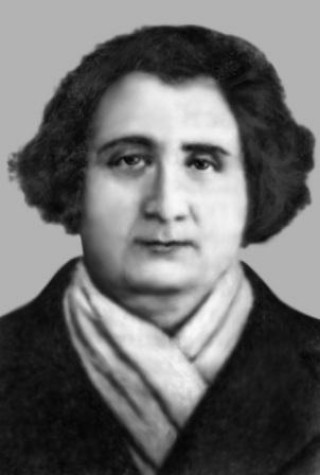Kurylo, Olena
Kurylo, Olena [Курило, Олена], b 6 October 1890 in Slonim, Belarus, Russian Empire, d reportedly in 1946. Linguist. Kurylo studied with Yevhen Tymchenko at Warsaw University. After the Revolution of 1917 she became a senior associate of the VUAN in Kyiv, a member of its Ethnographic, Regional Studies, and Dialectological commissions (see Ethnographic Commission of the All-Ukrainian Academy of Sciences), and a consultant to its Institute of the Ukrainian Scientific Language. She played an important role in the normalization of the literary Ukrainian language and Ukrainian scientific terminology (particularly of chemistry and botany), which she approached from a puristic and ethnographic position. Her contributions to the standardization of Ukrainian literary language include a widely used elementary Ukrainian grammar (1918; 11th edn, 1926) and Uvahy do suchasnoï ukraïns’koï literaturnoï movy (Remarks on the Contemporary Ukrainian Literary Language, 1920; 3rd edn, 1925).
From her systematic study of the phonetics of northern and southwestern Ukrainian dialects, particularly of their accentuation, which expanded on Vsevolod Hantsov's research, Kurylo concluded that Ukrainian arose from the merging of two originally distinct dialectal groups. In several articles and the monograph Sproba poiasnyty protses zminy e, o v novykh zakrytykh skladakh u pivdennii hrupi ukraïns’kykh diialektiv (An Attempt at Explaining the Process of Change of e, o in New Closed Syllables of the Southern Group of Ukrainian Dialects, 1928), she showed that the alternation of o, e with i developed independently in these groups through diphthongization in the north and assimilation in the south. Kurylo gave new explanations for the transition of o into a in such words as bahatyj (‘rich’) and of the transition in Western Ukraine of a into e preceded by a soft consonant (eg, žal' to žiel', ‘grief’). She also wrote works on the history of Russian (she contributed a new theory of the rise of dissimilatory akan’e), on Moldavian dialects, and on phonetics in general, as well as the first program for collecting Ukrainian folk gestures, facial expressions, children's exclamations and language, jargon, and nicknames (1923). Her approach gradually evolved from a purely phonetic one characteristic of the Neogrammarians into a structuralist-phonological one.
During the purge of the VUAN in the early 1930s, Kurylo sought refuge in Moscow, where she taught until her arrest in 1937. After her release she reportedly moved to the north of the Russian Soviet Federated Socialist Republic where she later died. A detailed analysis of her contributions is found in Yu. Sherekh's (George Yurii Shevelov's) Vsevolod Hantsov. Olena Kurylo (1954).
GeorgeYurii Shevelov
[This article was updated in 2009.]
